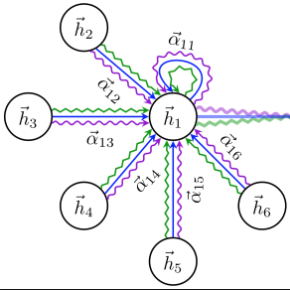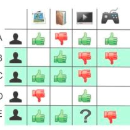Collaborative filtering (CF) is an essential technique in recommender systems that provides personalized recommendations by only leveraging user-item interactions. However, most CF methods represent users and items as fixed points in the latent space, lacking the ability to capture uncertainty. While probabilistic embedding is proposed to intergrate uncertainty, they suffer from several limitations when introduced to graph-based recommender systems. Graph convolutional network framework would confuse the semantic of uncertainty in the nodes, and similarity measured by Kullback-Leibler (KL) divergence suffers from degradation problem and demands an exponential number of samples. To address these challenges, we propose a novel approach, called the Wasserstein dependent Graph Attention network (W-GAT), for collaborative filtering with uncertainty. We utilize graph attention network and Wasserstein distance to learn Gaussian embedding for each user and item. Additionally, our method incorporates Wasserstein-dependent mutual information further to increase the similarity between positive pairs. Experimental results on three benchmark datasets show the superiority of W-GAT compared to several representative baselines. Extensive experimental analysis validates the effectiveness of W-GAT in capturing uncertainty by modeling the range of user preferences and categories associated with items.
翻译:暂无翻译




